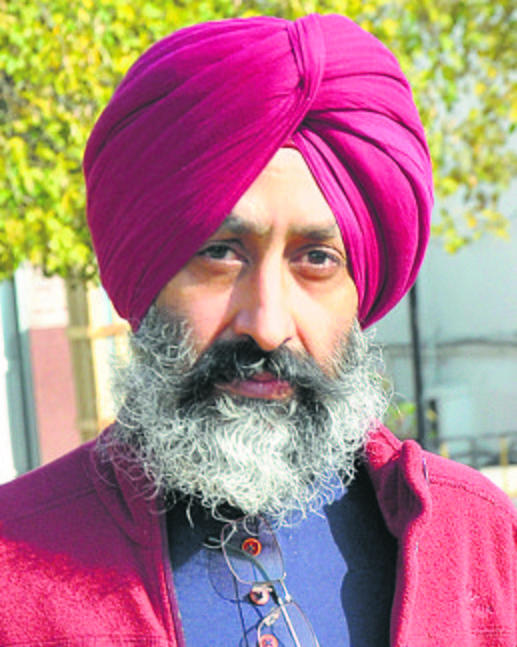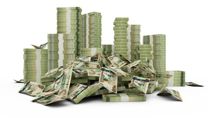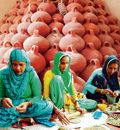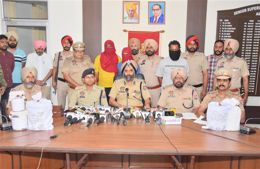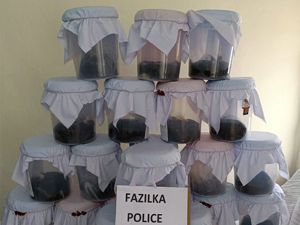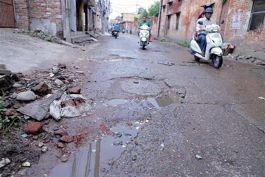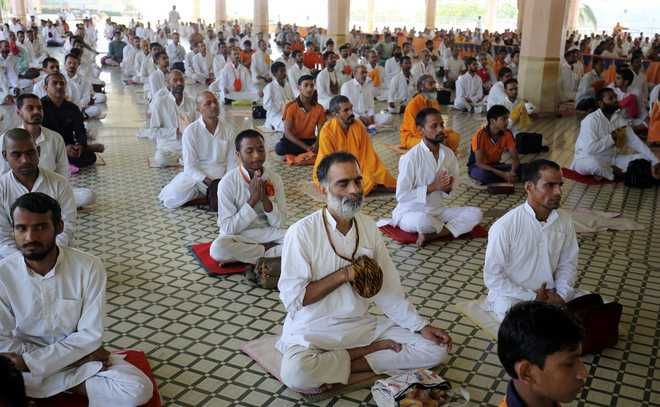
Picture for representational purpose only.
Rabbi Shergill
I am curled up into a ball on my soundproof studio/study floor, hands touching the feet. Physical touch guiding consciousness. ‘Who am I?’, ‘What is this?’ Attention skips from feet to hands to breath to the theatre in my head. There’s an inchoate cacophony imbued with a jet lag-like darkness that I can almost smell. The senses are bombed. Then a thought, clear as a lightning bolt, shakes the walls of this inner auditorium: ‘There’s not enough oxygen. You’re not having an epiphany, you moron! Just carbon dioxide-poisoning.’ I stagger to my feet, stumble into the kitchen, blind-assemble the mocha pot, finally finding the resoluteness to end my no-coffee vow. I pour myself an espresso and share my unsolicited half-formed insight and the view from the kitchen window — a soot-filled sky — with the yogini. She is receptive as always and forcefully reiterates her five-year-old vow: ‘This is our last winter here.’
Sipping the go-juice, I’ve another glorious, useless epiphany — we are with addiction. Yeah! That’s right, I’ve cracked it. We. You. Me. Everyone. Addicted, all of us. I start pouring over clinical literature on addiction. The similarities are a hoot. You could half-see a psychologist-sociologist symposium doubling over the prissy, politically correct framings and how aptly they describe our present state. Sample this: “At the root of addictive behaviour is some form of emotional stress, an issue that is so deeply buried within the person’s subconscious mind that addressing it is too overwhelming or unfathomable a challenge. To ease the stress, to make it go away, pleasure is found in excess.”
Yeah! I know the issue — the dependence on energy a.k.a. electricity, power, gas, oil, etc. How in its supreme wisdom, the self-styled wise monkey — homo sapiens — filled the sky with soot so he could light up the earth. Getting so addicted to the lights, the ICE, the ice creams, the tubes in the sky, the video calls, the spectacle in his palm that he cannot now imagine a world without those. Not just that, he will stamp out any imagination of such a reality. He is after all, an ape. Just ask the Cholanaikan of Mallapuram, the Chenchu of Nallamala or the Dongria Kondh of Niyamgiri.
I pour on. Site-upon-site brimming with cutting-edge, peer-reviewed pearls on the origins of our manic, crazed, suicidal magnificence. No dimension left unexplored, from the metaphysical to clinical. And in typical post-modernist fashion, no consensus on how to make headway. It’d be funny if it weren’t fatal.
Here! Check it out. According to a Jostein Rise and Torleif Halkjelsvik study (2019), there are two models: Choice and Disease. ‘The choice model holds that addictive behaviours are governed by universal principles of choice and motivation. It considers addiction a moral failure and addicts as people of bad character. The brain disease model holds that neural processes and chemical reactions following repeated intake of drugs cause lasting brain changes so that the reward system is hijacked and governs the motivations behind addictive behaviours (sic).’ Applied to our global civilisation: it follows that either we consciously choose bad options or have a disease that makes us do so. How do we know the choices are bad? Because the host starts to die. And guess what, the earth is dying. If you might look away from your five screens for a minute, even you might experience this scientific fact. Yay!
Beyond this, the studies do pretty much what political experts do in TV debates — peel away at the onion until the readers/spectators have tears in their eyes. Ah! The modern privilege of pathology! Ours must be the first generation that fusses so much over self-injury. Although in fairness, I don’t think we have any choice in the matter. Self-injury is the elephant in the room. The mammoth in the UN General Assembly. The by-product of that instinct — denial at the very base of our global civilisation. Freud knew what he was talking about.
So where do we go from here? My brand new personal rule of thumb is sacredness and balance. Bring those two into your decisions. Yup! I just made it up. Know why? Sacredness — because I figured that’s when I transcended my madness most smoothly, when the strictures of reason fell away effortlessly, when I not only felt the best version of myself but also connected to the whole. I found it occurred most often when I entered a sacred place or state. Like in a teary-eyed throng on the Darbar Sahib causeway or the first time my buddy Harry and I laid our eyes on the pristine, azure Chandrabhaga after crossing the forbidding Rohtang Pass in 1999, or how we wanted to cry our first time in Sangla valley in 2001. Or how I felt the first time I held my daughter freshly wrapped in that beige hospital towel. Imagine making collective decisions in that state! And Balance — humanity with others in the food chain and civilisation with its home planet.
We’ve tried cold reason — spawned by the double credo of our age: determinism and reductionism. Fashioned every single institution in their image. It’s brought us to a point where everything — from near space to deep ocean — has turned into garbage. The one cost that appears too much to bear is that of the loss of the sacred. I now appreciate the wisdom of the sherpa who refused to climb Everest or the Ladakhi who wouldn’t enter their lakes, as also the horror of the native Americans at the sight of the plough. Or why Devraha Baba wouldn’t let the babool in his ashram be cut down.
So, how about infusing our collective decisions with collective memories that alert us spiritually, bring us to reverence? In the age of apocalypse in-instalments, what have we got to lose, except Newton?
Join Whatsapp Channel of The Tribune for latest updates.






